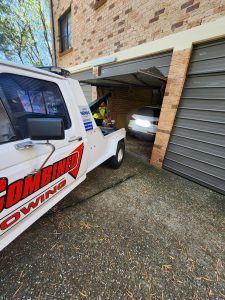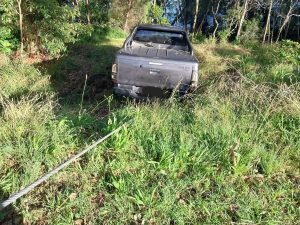Vehicle salvaging refers to the process of recovering damaged, wrecked, or otherwise non-functional vehicles and either repairing them to a functional state or using their parts for other vehicles. Salvaging a vehicle is typically done when the cost of repairing the vehicle is greater than the value of the vehicle itself, but can also be done when a vehicle has been totalled in an accident and the insurance company has deemed it a total loss.
Salvage vehicles can be sold to individuals or businesses that are willing to take on the repairs and rebuild the vehicle. This can be a cost-effective way to repair or obtain a vehicle while also reducing waste and conserving resources. Salvage vehicles can also provide a valuable source of parts and materials for repairs, and for car enthusiasts, salvaged vehicles can be a source of rare or hard-to-find vehicles.



Types of Vehicle Salvaging
There are generally three types of vehicle salvaging:
- Total Loss Salvage:
This type of salvage applies to vehicles that have sustained severe damage and are deemed a total loss by the insurance company. A vehicle may be considered a total loss when the cost of repairing the vehicle exceeds its actual cash value or when the damage is so extensive that it cannot be safely repaired. Total loss salvage vehicles are often sold at auction to salvage companies or individuals who may attempt to strip it for parts.
- Repairable Salvage:
This type of salvage applies to vehicles that have sustained damage but are still repairable. These vehicles are often sold at auction to salvage companies or individuals who specialize in repairing and rebuilding vehicles. Repairable salvage vehicles may have been involved in accidents, hailstorms, or flooding and may require extensive repairs before they can be safely driven again. Once the repairs are complete, the vehicle will be issued a rebuilt title, indicating that it has been restored to a functional state.
- Scrap Salvage:
This type of salvage applies to vehicles that are no longer functional and are essentially considered to be scrap metal. These vehicles may have been damaged beyond repair, or they may be so old and obsolete that there is no demand for their parts or materials. Scrap salvage vehicles are often sold to metal recycling companies, which will dismantle the vehicle and sell the various parts and materials for scrap.
Understanding the Difference Between Towing and Salvage
Towing and salvage are two related but distinct services in the automotive industry. While both services involve the movement of vehicles, they differ significantly in their purpose and execution.
- Towing
Towing is the process of moving a vehicle from one location to another using a tow truck. Typically, towing is done for cars that are inoperable or have broken down, although there are also services such as accident towing, which require the vehicle to be taken to a repair shop. Towing services may also be used for impounding vehicles, moving illegally parked cars, or transporting new or used vehicles between dealerships. Towing companies charge a fee for their services, which varies depending on distance, weight, and other factors.
- Salvage
Salvage, on the other hand, refers to the process of recovering a vehicle that has been damaged or totalled due to an accident, natural disaster, or another incident. Salvage companies specialize in recovering vehicles that are no longer functional or safe to drive. They often work closely with insurance companies to assess the damage, determine the value of the vehicle, and negotiate a settlement for the owner. Salvage companies may also purchase damaged vehicles from insurance companies or salvage auctions.
Factors that Affect the Value of a Salvaged Vehicle
Several factors can affect the value of a salvaged vehicle. These factors are important to consider when assessing the value of a vehicle that has been salvaged, whether you are an insurance adjuster, a salvage company, or an individual buyer. The following are some of the key factors that affect the value of a salvaged vehicle:
- Extent of Damage
The severity of the damage to a vehicle is a significant factor that can affect its value. A vehicle that has sustained minimal damage, such as a broken taillight or a dent in the door, will likely have a higher salvage value than a vehicle that has been severely damaged in a collision.
- Age of The Vehicle
Generally, newer vehicles that have sustained damage will have a higher salvage value than older vehicles with similar damage. This is because newer vehicles often have more valuable parts and components to be salvaged and reused.
- Make and Model of The Vehicle
Popular makes and models with high demand for their parts may have a higher salvage value than less popular vehicles. Luxury and high-end vehicles may also have a higher salvage value due to the value of their parts and components.
- Current Market Value of The Vehicle
If the current market value of the vehicle is low, then its salvage value will likely be lower as well. This is because the cost of repairing or rebuilding the vehicle may exceed its value.
What Should You Do If You Need a Salvage Tow?
If you need a salvage tow for your vehicle, there are some important steps you should take to ensure a safe and efficient process:
- Ensure Everyone is Safe
The priority when requiring a salvage tow is to ensure the safety of everyone involved. Make sure that you and any passengers are safely away from the vehicle and in a secure location to avoid any potential accidents.
- Contact a Reputable Salvage Tow Company
Contact Combined Towing for reliable and professional salvage services. Having five decades of expertise in this field, we have the knowledge and experience to handle any salvage job with efficiency and care. Our team is equipped with state-of-the-art equipment and technology to ensure a safe and effective salvage operation, and we pride ourselves on our commitment to environmental responsibility. Whether you need a vehicle towed from a difficult location or require full-scale salvage services, we are here to help – contact us today!
- Provide Information About Your Vehicle
When you contact the salvage tow company, provide as much information as possible about your vehicle, including the make, model, and year, as well as the location of the vehicle and the extent of the damage.
- Prepare The Vehicle
Before the salvage tow company arrives, remove any personal belongings from the vehicle and ensure that the vehicle is easily accessible. This will help to speed up the process and minimise any potential damage during towing.



